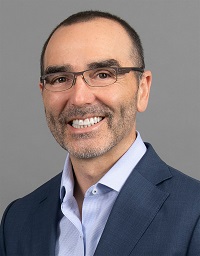
As part of representing both buyers, including DSOs, and sellers of dental practice entities and assets, we caution parties to make decisions without blinders to ensure that they are making well-informed decisions that are not based upon emotion or hyperbole. Unfortunately, this does not always happen and, in many instances, there is a failure to see information, failure to seek information, and failure to use information. Thus, some parties rely too heavily on emotion, vague or exaggerated statements, or their gut, and then begin to short-cut the overall due diligence process. This blog post focuses on dentists that are looking to sell their dental practice assets to a DSO, and the required mindset of that dentist.
Selling Dentists Need to be Selective.
When it is said that sellers of businesses need to be selective, it usually means that they should carefully consider potential buyers and offers. Selectivity is important because selling a business involves transferring something that has likely been built over a long period of time. Sellers want to ensure that the legacy and value of their business is preserved, and that the new owner is capable of maintaining or enhancing its success. Being selective allows sellers to find the right fit in terms of the buyer’s vision, resources, and ability to grow the business. This is no different when it comes to dentists and their potential sell to a DSO. As part of this process, we impress upon the selling dentists that each selling dentist needs to take their time, sell when they want to sell—
not when they need to—and be very selective in partnering with a particular DSO.
Need to Sell Versus Want to Sell.
Why is this distinction so important? Well, when sellers need to sell versus want to sell, there is a difference in the urgency and motivation driving the sale, and ultimately the terms of that deal, and the dentist’s perception of that deal once closed. Was it a good deal or not? The last thing we want for our selling dentists is for that dentist to have seller’s regret.
“Need to sell” typically suggests a more urgent situation, where the seller may be facing financial challenges, changes in personal circumstances, or a pressing need to exit the business for reasons like health or retirement. In such cases, the focus is often on finding a buyer quickly to alleviate the necessity of selling. And with that, we lose leverage, have less than optimal business terms, and generally are dissatisfied with the end result.
“Want to sell,” on the other hand, often indicates a more voluntary decision. The seller may desire to move on to other opportunities or is open to considering offers to capitalize on the business they have built. In this scenario, the seller may have more time to carefully consider potential buyers and offers, and to ensure the business transitions to capable hands. In this instance, it allows the dentist to take their time, be more selective, and ensure that they have a buyer’s mentality when negotiating with and potentially partnering with a DSO. Understanding this distinction, when it comes to a seller’s mentality versus a buyer’s mentality, can be crucial for both sellers and potential buyers in negotiating and structuring a deal that meets the needs of all parties involved.
Even Though You are the Seller, Have a Buyer’s Mentality!
What does it mean to have a buyer’s mentality? Having a buyer’s mentality typically means approaching purchasing decisions with a strategic and discerning mindset. It involves being thoughtful about one’s purchases, and considering factors such as value, quality, and long-term satisfaction, rather than making impulsive decisions. This approach often involves doing research, comparing options, and making informed choices based on one’s needs and preferences. In all instances, we have to be willing to truly walk away. This is no different on the seller’s side. We need to:
- Develop a success profile in terms of what you expect from the transaction and what you want to see and experience post-closing.
- Be thoughtful when it comes to the business terms, including enterprise value, rollover equity, earn-outs, employment compensation, retirement, and much more.
- Conduct research and compare DSOs to ensure that you are making an informed decision on what DSO works best for you.
Nardone Comment: See our prior discussion on DSOs: Dental Support Organizations (DSOs)—What Are They and Are They Right For You? – Vince Nardone (vincentjnardone.com)
- Make it clear to each DSO that you are considering other DSOs, and you want to be upfront with them about that. They will understand.
- Make it clear that you do not need to sell at this time, but you certainly want to sell if the right opportunity arises, including the right business terms and right DSO.
- Engage competent advisors with strategic and deep knowledge in the DSO space.
- I know that this is self-serving, but it is a must. When you go to have heart surgery, do you hire your brother-in-law, who is a family practitioner, just because he is your brother in-law? I think not… :-) As an example, if the potential advisor says that the advisor is a dental CPA or a dental attorney, ask questions, including how many DSO transactions they have handled in the past 12 months.
- And, most importantly, be willing to walk away. We have too many sellers that ultimately give in to certain terms because they are: (i) ready to be done, (ii) worn out, or (iii) simply afraid to miss out on something, otherwise commonly referred to as FOMO. Don’t be afraid of missing out. Some of the best deals clients have done are those that they have walked away from. I am certainly not suggesting that you do not negotiate or be willing to make concessions. We certainly need to do that. We all want a win-win transaction. But, there are certain times when we simply have to walk away.
That is what I mean by sellers having a buyer’s mentality!

Vince Nardone is a partner with Benesch, with a focus in Benesch’s healthcare practice. He is a thought leader and regular speaker in the dental industry. He may be reached at (614) 223-9326 or vnardone@beneschlaw.com.
 Vince Nardone Discusses Employment Contracts with Ohio State Dental Students
Vince Nardone Discusses Employment Contracts with Ohio State Dental Students  Navigating the 2024 Landscape: Strategies and Considerations for Dental Support Organizations (DSOs)
Navigating the 2024 Landscape: Strategies and Considerations for Dental Support Organizations (DSOs)  Sellers of Dental Practices to DSOs need to have a Buyer’s Mentality Requiring Selectivity and a Well-Thought-Out, Decision-Making Process
Sellers of Dental Practices to DSOs need to have a Buyer’s Mentality Requiring Selectivity and a Well-Thought-Out, Decision-Making Process  Increasing Profitability by Minimizing Disruptions within Your Dental Practice
Increasing Profitability by Minimizing Disruptions within Your Dental Practice  As a Dentist, What Are My Obligations Related to Out-of-State Patients and Potential Prescription Drug Abuse?
As a Dentist, What Are My Obligations Related to Out-of-State Patients and Potential Prescription Drug Abuse?